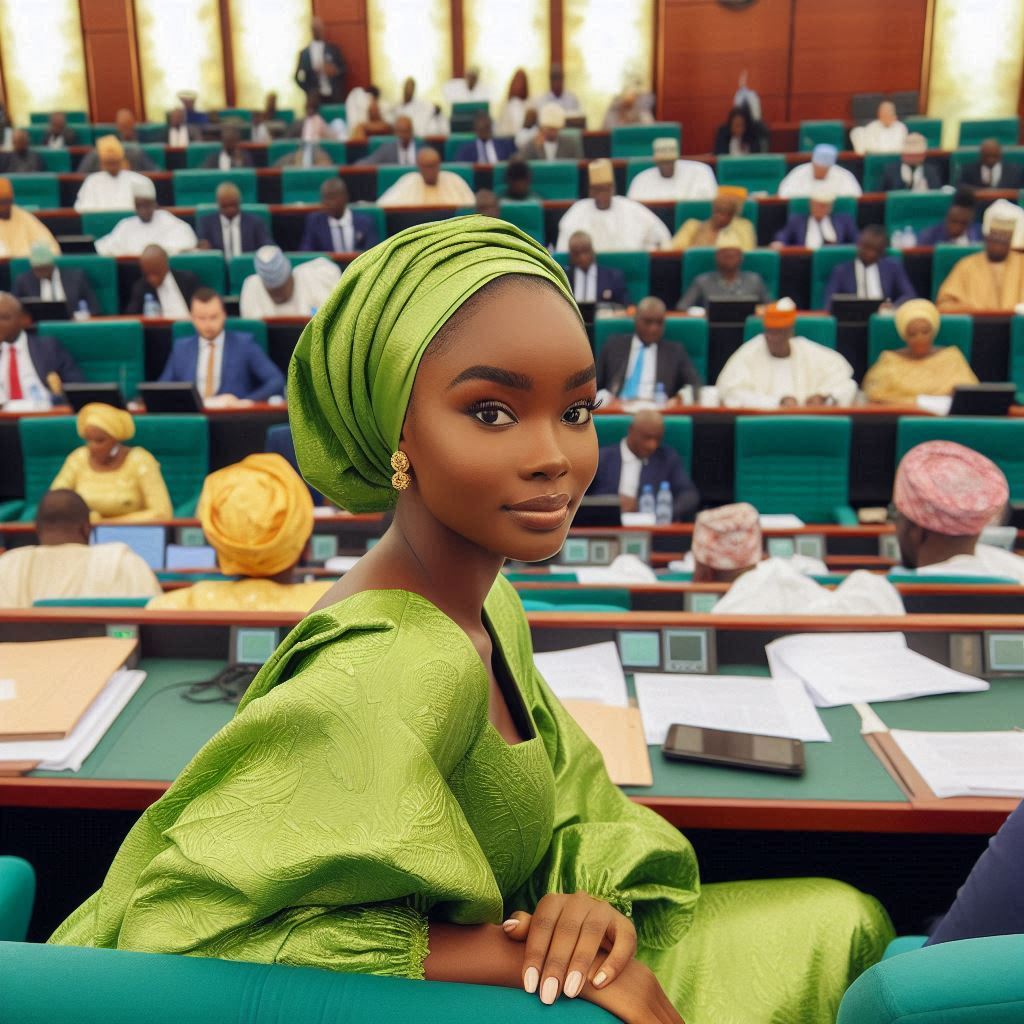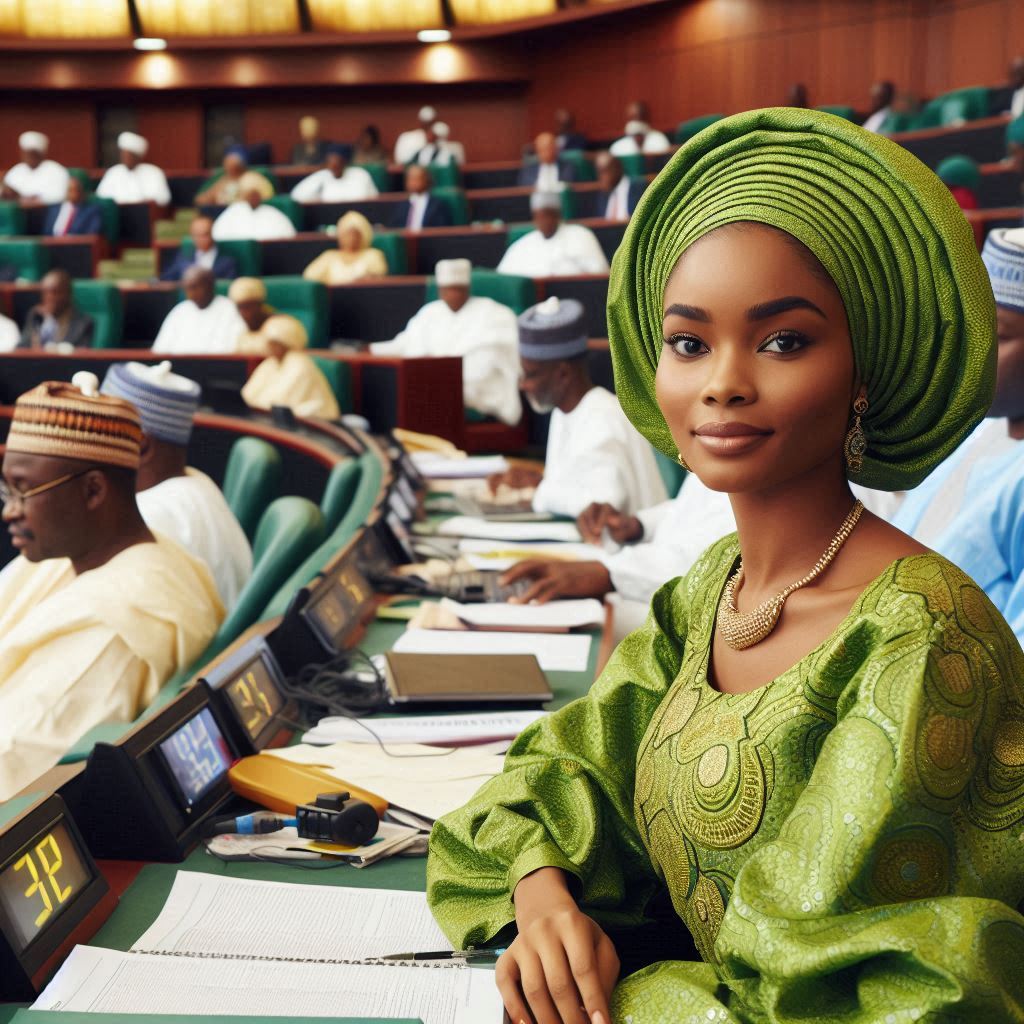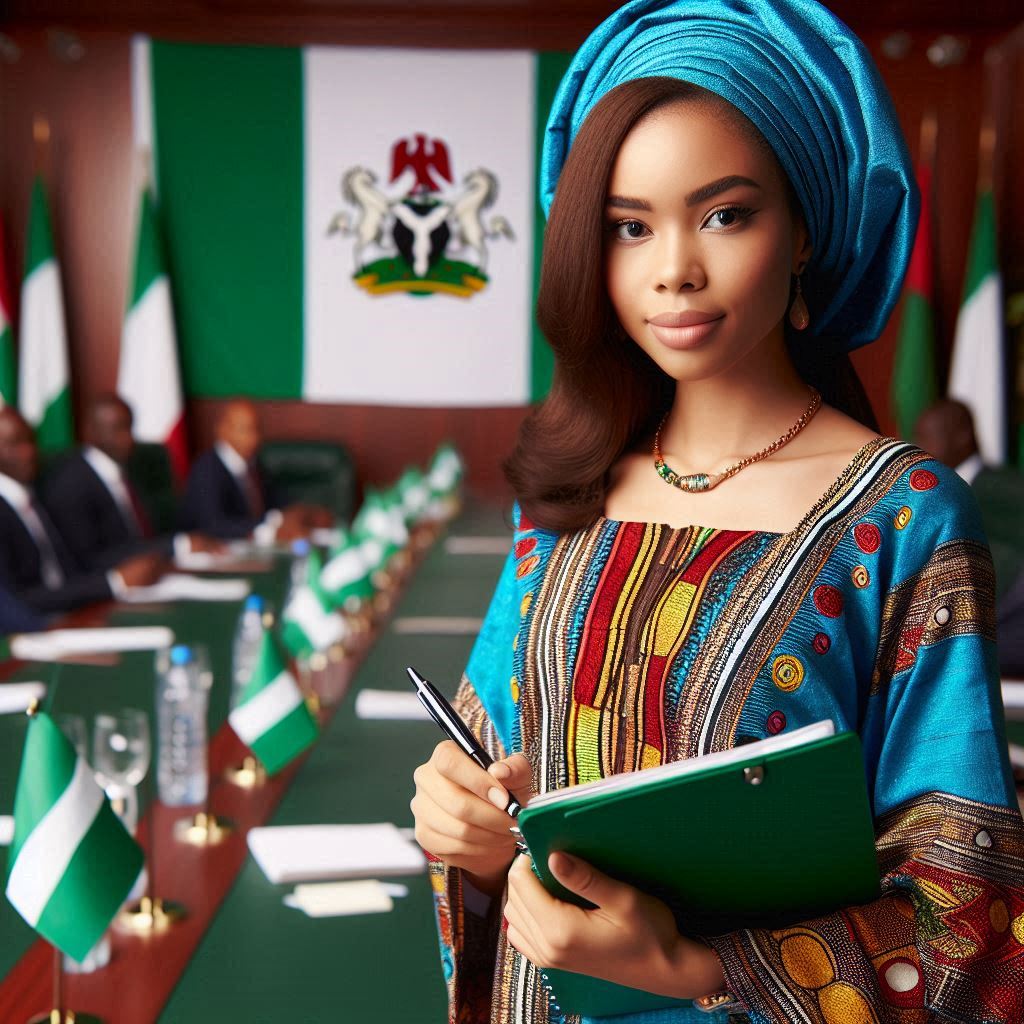Introduction
In the Nigerian context, comparative politics focuses on domestic political systems while international relations deal with global interactions.
Comparative Politics and International Relations in the Nigerian Context
Comparative politics is the study of political systems within countries, analyzing structures, processes, and behaviors. International relations, on the other hand, examine interactions between countries in the global arena.
The Importance of Studying these Disciplines in Nigeria
Understanding comparative politics helps Nigerians comprehend their political system, leading to effective governance and informed decision-making.
International relations is crucial for Nigeria to navigate global challenges, establish diplomatic relations, and promote economic growth.
Key Differences and Similarities between the Two Disciplines
The main difference lies in the focus of study, with comparative politics emphasizing domestic politics and international relations concentrating on global interactions.
However, both disciplines share the goal of analyzing political systems to promote good governance and international cooperation.
Historical Context
Comparative politics and international relations in Nigeria have evolved significantly over the years, shaped by historical events and political transitions.
Evolution of Comparative Politics and IR in Nigeria
In the early years of Nigeria’s independence, the study of comparative politics and international relations was limited and influenced by Western perspectives.
However, with the emergence of new scholars and research institutions in the country, there was a shift towards a more indigenous approach.
As Nigeria faced various political challenges, such as military coups and ethnic tensions, the study of comparative politics became crucial in understanding the dynamics of power and governance.
International relations also gained prominence as Nigeria sought to strengthen diplomatic ties with other countries and participate in global organizations.
Role of Colonialism and Post-Colonial Politics
Colonialism had a significant impact on the political landscape of Nigeria, leading to the imposition of Western ideologies and institutions.
After gaining independence in 1960, Nigeria experienced a turbulent period marked by ethnic rivalries and struggles for power, which shaped the field of comparative politics.
The legacy of colonialism and post-colonial politics continues to influence the study of international relations in Nigeria, as the country navigates its position in the global arena.
Key Scholars and Theories
Several scholars have contributed to the development of comparative politics and international relations in Nigeria, including Claude Ake and Richard Joseph.
Claude Ake, a renowned political scientist, focused on issues of democracy and governance in Africa, while Richard Joseph analyzed Nigeria’s political economy and developmental challenges.
Theories such as neo-colonialism and dependency theory have also influenced the study of international relations in Nigeria, providing critical perspectives on the country’s interactions with the global community.
Overall, the evolution of comparative politics and international relations in Nigeria reflects the complex interplay of historical legacies, political transitions, and the contributions of key scholars and theories.
Read: Student Experiences: Life in Communication Arts
Curriculum and Focus
When looking at the curriculum and focus of comparative politics and international relations in Nigerian universities, we can see distinctive differences and similarities.
Compare the Curriculum and Focus
- Comparative politics: Focuses on the study of domestic politics, political institutions, and governance within countries.
- International relations: Concentrates on the interactions between countries, global issues, and diplomacy.
Common Areas of Study and Specialization
- Common areas of study in both disciplines include political theory, political economy, and public policy.
- Specializations within comparative politics can range from democratization to ethnic conflict resolution.
- In international relations, students can specialize in security studies, global governance, or diplomatic practice.
Teaching and Research Methods
- In Nigerian academic institutions, comparative politics is typically taught through a combination of lectures, seminars, and case studies.
- Research in this field often involves quantitative analysis of political trends and qualitative case studies.
- International relations courses focus on theoretical frameworks, current affairs, and policy analysis.
- Research in international relations often requires students to conduct fieldwork, analyze diplomatic documents, and engage with real-world challenges.
basically, while comparative politics and international relations share some commonalities in terms of curriculum and focus, they offer distinct perspectives on the study of politics and international affairs.
Nigerian universities provide a diverse range of opportunities for students to specialize and conduct research in these dynamic disciplines.
Read: How to Apply for Communication Arts Programs
Career Opportunities
The career prospects for students studying comparative politics and international relations in Nigeria
Studying comparative politics and international relations in Nigeria opens up a wide array of career options for students.
Here are some career prospects for students in these fields:
Government Agencies
Graduates in comparative politics and international relations can work in government agencies such as the Ministry of Foreign Affairs, where they can contribute to formulating foreign policy and representing the country on the international stage.
Non-Governmental Organizations (NGOs)
NGOs working in areas such as human rights, conflict resolution, and development often require individuals with a background in comparative politics and international relations to navigate complex political landscapes.
International Organizations
Organizations like the United Nations, African Union, and ECOWAS provide opportunities for graduates to work on regional and global issues, promoting peace, security, and development.
Diplomatic Service
Graduates can pursue a career in the diplomatic service, representing Nigeria abroad, negotiating treaties, and fostering international cooperation.
Research and Academia
Those interested in research and academia can work in universities, think tanks, and research institutions, studying political systems, policies, and international relations.
Industries and Sectors in Demand
Graduates with backgrounds in comparative politics and international relations are in demand across various industries and sectors in Nigeria. Here are some areas where these professionals are sought after:
International Business
With the global nature of business today, companies operating in Nigeria require individuals with knowledge of international relations to navigate the complexities of cross-border transactions and partnerships.
Security and Defense
The security sector, including defense agencies and private security firms, value individuals who understand political dynamics and international relations to address security challenges effectively.
Media and Journalism
Journalists and media professionals with a background in comparative politics and international relations are essential for reporting on international events, analyzing geopolitical developments, and shaping public opinion.
Consulting
Consulting firms often hire graduates with expertise in comparative politics and international relations to provide advisory services to clients on political risk, policy analysis, and global trends.
Multilateral Organizations
Organizations like the World Bank, IMF, and regional development banks look for professionals with a deep understanding of political systems and international relations to drive sustainable development initiatives.
Skills and Competencies for Success
To excel in the fields of comparative politics and international relations in Nigeria, students need to develop a set of skills and competencies that will set them apart in the job market. Here are some key requirements:
Analytical Skills
Professionals must be able to analyze complex political situations, international agreements, and policy documents to provide insightful analyses and recommendations.
Communication Skills
Effective communication, both written and verbal, is essential for conveying ideas, negotiating agreements, and building relationships with stakeholders across different cultures.
Cultural Competence
Understanding cultural norms, values, and practices is crucial for navigating international relationships, negotiating with foreign counterparts, and fostering cross-cultural collaboration.
Research Abilities
Proficiency in research methodologies, data analysis, and evidence-based reasoning is necessary for conducting in-depth studies on political systems and international dynamics.
Diplomatic Skills
Diplomacy, negotiation, and conflict resolution skills are vital for representing Nigeria on the international stage, building alliances, and resolving disputes peacefully.
Essentially, studying comparative politics and international relations in Nigeria offers a wealth of career opportunities in government agencies, NGOs, international organizations, research institutions, and more.
Graduates with the right skills and competencies can thrive in diverse sectors and make a significant impact on global issues.
Policy Impact
Comparative politics and international relations play crucial roles in shaping public policy in Nigeria.
Both disciplines provide frameworks for understanding complex political dynamics.
They offer insights that influence government decision-making and foreign policy. By examining these fields, we can appreciate their impact on Nigerian policy interventions.
Transform Your Career with Expert Guidance
Get personalized mentorship consulting that’s tailored to your unique path. Our expert advice is actionable and exclusive.
Get StartedThe Role of Comparative Politics in Nigeria
Comparative politics involves analyzing political systems and behaviors across different countries.
In Nigeria, it helps identify effective governance practices.
Researchers study electoral processes, political parties, and institutional frameworks.
These studies reveal strengths and weaknesses in Nigeria’s political system.
Policymakers use this information to implement reforms and improve governance.
For example, insights from comparative politics have guided electoral reforms and anti-corruption strategies.
These reforms aim to enhance transparency and accountability in Nigerian politics.
The Influence of International Relations
International relations focuses on interactions between countries.
It examines how global dynamics affect national policies.
In Nigeria, this field is vital for shaping foreign policy.
Researchers analyze international trends, diplomatic relations, and global economic patterns.
Their findings help Nigeria navigate complex international landscapes.
For instance, understanding global trade patterns aids Nigeria in negotiating better trade deals.
Insights from international relations also guide Nigeria’s participation in international organizations.
This participation is crucial for securing foreign aid and investment.
Research Impact on Government Decision-Making
Research in comparative politics and international relations significantly impacts government decision-making.
It provides evidence-based insights that inform policy choices.
Policymakers rely on this research to address national and international challenges.
For example, studies on political stability help design conflict resolution strategies.
Research on global economic trends influences fiscal policies and economic planning.
These disciplines offer a foundation for creating informed and effective policies.
Challenges in Policy Intervention
Despite their importance, these fields face challenges in influencing policy.
One major challenge is the gap between research and practice.
Policymakers may not always apply academic findings to real-world situations.
This disconnect limits the impact of research on policy outcomes.
Additionally, political and economic constraints can hinder the implementation of research-based recommendations.
Resource limitations and political resistance often pose significant barriers.
Opportunities for Effective Policy Intervention
Despite these challenges, there are opportunities for effective policy intervention.
Strengthening collaboration between researchers and policymakers can bridge the gap between theory and practice.
Enhancing the capacity of government institutions to utilize research findings is also crucial.
This can be achieved through training programs and workshops.
Increasing investment in research can further enhance its impact on policy.
By prioritizing evidence-based policymaking, Nigeria can address complex political and international issues more effectively.
Generally, comparative politics and international relations are essential for shaping public policy in Nigeria.
They provide valuable insights that influence government decisions and foreign policy.
While challenges exist, there are significant opportunities for enhancing policy interventions.
By leveraging research from these fields, Nigeria can improve governance, stability, and international standing.
Effective collaboration and investment in research will be key to realizing these opportunities.
Read: Digital Media Trends in Communication Arts

Research and Publications
Exploring the current research trends and publications in comparative politics and international relations in Nigeria is essential for understanding the academic landscape in these fields.
Current Research Trends
- Many Nigerian scholars are focusing on issues of governance, democratization, and political institutions.
- Research on conflict resolution, peacebuilding, and security studies is also gaining momentum in the country.
- There is a growing interest in exploring how Nigeria’s foreign policy impacts regional and global dynamics.
Leading Journals and Academic Platforms
- Leading journals like African Affairs, Journal of Modern African Studies, and African Journal of Political Science provide a platform for Nigerian scholars to publish their research.
- Nigerian academic institutions like University of Ibadan, University of Lagos, and Ahmadu Bello University host conferences and workshops that promote research in these disciplines.
- Online platforms like African Arguments, The Conversation, and Nigeria Research Network also showcase Nigerian scholarship in comparative politics and international relations.
Importance of Generating Knowledge
- Research in comparative politics and international relations is crucial for generating knowledge that can inform policy decisions and enhance governance practices in Nigeria.
- Contributing to global debates through research in these areas helps Nigerian scholars to have a voice in shaping international relations discourse.
- By engaging in research, Nigerian academics can bridge the gap between theory and practice, bringing insights from their local context to the global stage.
Therefore, the research and publications in comparative politics and international relations in Nigeria play a significant role in advancing knowledge, shaping policies, and contributing to global conversations.
Nigerian scholars have a unique perspective to offer, and it is crucial to continue supporting research efforts in these areas.
Read: Internship Opportunities for Communication Arts Students
Challenges and Future Prospects
The main challenges facing the study of comparative politics and international relations in Nigeria
- One of the main challenges facing the study of comparative politics and international relations in Nigeria is the lack of adequate funding for research and academic programs.
- Another challenge is the limited availability of data and information on political phenomena, which makes it difficult for researchers to conduct comprehensive analyses.
- The political environment in Nigeria is also characterized by instability and corruption, which can impede the study of politics and international relations.
- Additionally, there is a lack of coordination and collaboration between different educational institutions and research centers, which hinders academic progress in these fields.
Strategies for Overcoming Challenges
- One strategy for overcoming these challenges is to advocate for increased government funding for research and academic programs in comparative politics and international relations.
- Researchers and scholars can also work to establish networks and partnerships with international organizations and universities to access data and information on political phenomena.
- Moreover, efforts should be made to strengthen institutions and promote transparency and accountability in the political system to create a conducive environment for academic research.
- Collaboration between universities and research centers in Nigeria should be encouraged to share resources and expertise, facilitating academic progress in the fields of comparative politics and international relations.
Future Prospects and Opportunities for Growth
- Despite the challenges, there are numerous future prospects and opportunities for growth in the fields of comparative politics and international relations in Nigeria.
- Advancements in technology and communication have made it easier to access information and collaborate with scholars and researchers from around the world.
- There is a growing demand for experts in politics and international relations in Nigeria, creating opportunities for individuals to pursue careers in research, academia, and policymaking.
- Moreover, as Nigeria continues to play a significant role in regional and global politics, there will be increasing opportunities for scholars to contribute to the understanding of political dynamics and international relations.
Conclusion
Comparative politics and international relations are crucial for understanding Nigeria’s political landscape.
These disciplines offer insights into governance practices and international dynamics.
They significantly influence government decision-making and foreign policy in Nigeria.
Comparative politics helps identify effective governance strategies by analyzing political systems.
International relations provide a framework for navigating global interactions and shaping foreign policy.
Despite challenges, the opportunities for policy intervention are immense.
Strengthening collaboration between researchers and policymakers can enhance the impact of academic findings on real-world policies.
By investing in research and prioritizing evidence-based policymaking, Nigeria can address complex political and international issues effectively.
Exploring these disciplines further will deepen our understanding of Nigeria’s political and international landscape.
This knowledge is essential for informed policy and governance.
We encourage readers to delve into comparative politics and international relations to better grasp their implications for Nigeria’s future.




